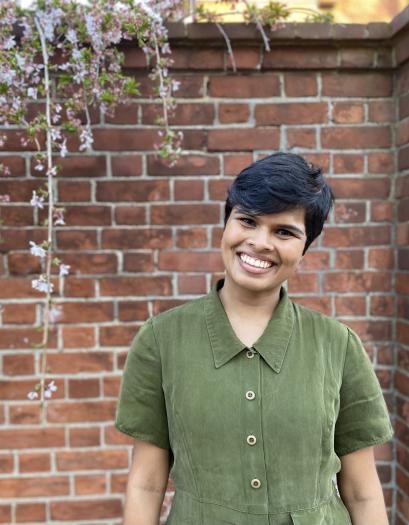
Pamudu Tennakoon is the recipient of the 2022 Mellon International Dissertation Research Fellowship (IDRF) for her project, Decolonization and Ruination: Rewriting Colonial Architecture in Contemporary Colombo and Singapore.
The IDRF, overseen by the Social Sciences Research Council, will fund Pamudu’s dissertation fieldwork in Colombo, Sri Lanka and Singapore for twelve months. The program provides support for housing and living costs, round trip travel to research sites, local transportation, and other affiliated fees and expenses.
In addition to being a fourth-year graduate student in the History of Art & Architecture, Pamudu pursues an MA in Anthropology, through Brown University’s Open Graduate Education program.
The Department celebrates Pamudu’s momentous achievement, and looks forward to hearing about what she will discover while in the field. Below is Pamudu’s research summary for Decolonization and Ruination:
By investigating the place of colonial architecture in contemporary societies, my dissertation aims to provide an understanding of the tangible and concrete ways in which the people in the cities of Colombo (Sri Lanka) and Singapore understand, rewrite, and negotiate their identities in relation to their British colonial pasts. My dissertation asks: how have colonial architectural forms and styles become ingrained in histories and cultures, through the postcolonial to the contemporary? How do people continue to occupy and traverse once colonial spaces, and how do they relate to the physical remnants of these pasts? How does the treatment of colonial architecture in contemporary societies differ across diverse postcolonial nations? And most importantly, how do these engagements with colonial architecture reflect and speak to processes of decolonization? Through a combination of architectural historical and ethnographic methods, rather than theorizing from above, this dissertation aims to articulate the intricate ways that decolonization happens on the ground, through everyday interactions, in and through the creative and generative repurposing of the seemingly intractable built environment. Through this research, I propose a theory of ruins that does not look at ruins of the colonial regime, such as architecture, as mere reminders, or reverence for the colonial past but rather constructive space for potential acts of decolonization.